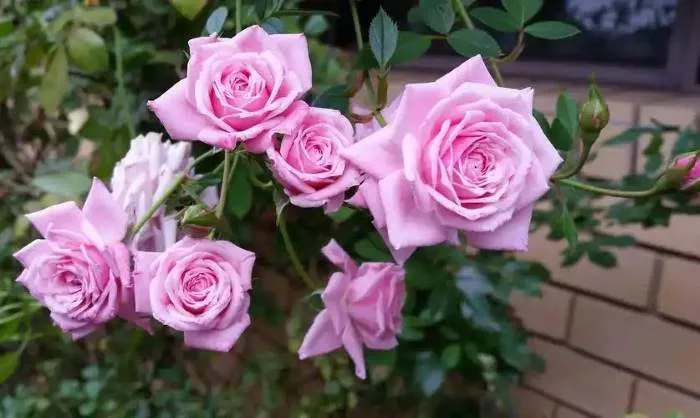Flowers are more than just beautiful decorations. They play significant roles in nature, culture, and human well-being. Understanding what flowers can do helps us appreciate their value beyond aesthetics. This article will explore the various functions and benefits of flowers, covering their ecological importance, cultural significance, health benefits, and economic contributions.
Ecological Roles of Flowers
Flowers are essential components of ecosystems. They serve several critical functions that support life on Earth.
Pollination
One of the most vital roles of flowers is to attract pollinators. Pollinators such as bees, butterflies, birds, and bats are drawn to flowers by their colors, scents, and nectar. When these animals visit flowers to collect nectar, they inadvertently transfer pollen from one flower to another. This process is crucial for the reproduction of many plants. Pollination leads to the production of fruits and seeds, which are essential for the continuation of plant species.
Biodiversity Support
Flowers contribute to biodiversity by providing food and habitat for various organisms. Different flowers attract different pollinators and herbivores, creating a diverse ecosystem. A diverse range of plant species supports a variety of animal species, which helps maintain ecological balance. This biodiversity is vital for ecosystem resilience, allowing it to adapt to changes and disturbances.
Soil Health
Flowers also play a role in maintaining soil health. Certain flowering plants, particularly legumes, can improve soil fertility. They fix nitrogen in the soil, making it more nutrient-rich for other plants. Healthy soil supports plant growth and contributes to sustainable agricultural practices.
Cultural Significance of Flowers
Flowers hold deep cultural significance in many societies around the world. They are often used in rituals, celebrations, and as symbols of emotions.
Symbolism
Flowers have long been used as symbols in various cultures. For example, red roses symbolize love, while lilies often represent purity. Different flowers can convey different messages, making them popular choices for gifts and decorations. This symbolism can vary greatly between cultures, adding to their richness and diversity.
Rituals and Ceremonies
Flowers play a vital role in many rituals and ceremonies. They are commonly used in weddings, funerals, and religious ceremonies. In weddings, flowers symbolize love and commitment. In funerals, they represent remembrance and respect for the deceased. In religious ceremonies, flowers are often offered as a sign of devotion.
Art and Literature
Flowers have inspired countless works of art and literature. Artists and writers have used flowers as subjects or symbols to convey emotions, themes, and ideas. From paintings to poetry, flowers have been a source of inspiration for creativity throughout history.
Health Benefits of Flowers
Flowers also offer various health benefits, both mental and physical. Their presence in our environment can enhance our well-being in several ways.
Mental Health
Research has shown that flowers can positively impact mental health. Being around flowers can reduce stress and promote feelings of happiness. The colors and scents of flowers can evoke positive emotions and improve mood. Studies have found that having flowers in the home or workplace can lead to increased productivity and creativity.
Aromatherapy
Many flowers are used in aromatherapy for their calming and therapeutic properties. Essential oils derived from flowers, such as lavender and chamomile, are known for their soothing effects. These oils can help reduce anxiety, improve sleep quality, and promote relaxation.
Medicinal Uses
Some flowers have medicinal properties and are used in traditional medicine. For example, the flowers of the chamomile plant are often used to make tea that can aid digestion and promote sleep. Similarly, hibiscus flowers are known for their antioxidant properties and are used to make herbal teas that can support heart health.
Economic Contributions of Flowers
The floral industry is a significant contributor to the global economy. It encompasses various sectors, including agriculture, retail, and events.
Flower Production
The cultivation of flowers is a major agricultural industry. Many countries grow flowers for local markets and export. Flower farms provide jobs and contribute to the economy. The production of cut flowers, potted plants, and landscaping plants generates substantial revenue.
Retail and Floristry
The retail sector of the floral industry includes flower shops, online retailers, and supermarkets. Florists create beautiful arrangements for various occasions, from weddings to corporate events. The demand for flowers in these contexts supports local businesses and contributes to economic growth.
Events and Tourism
Flowers play a crucial role in events and tourism. Festivals celebrating flowers, such as the Tulip Festival in the Netherlands or the Cherry Blossom Festival in Japan, attract tourists and generate revenue for local economies. These events highlight the beauty of flowers and their cultural significance, promoting tourism and community engagement.
Conclusion
Flowers are remarkable organisms that offer numerous benefits to ecosystems, cultures, and human health. Their roles in pollination, biodiversity support, and soil health are essential for maintaining ecological balance. Culturally, flowers symbolize emotions and are integral to rituals and ceremonies. They also contribute to mental well-being, provide therapeutic benefits, and have medicinal uses. Economically, the floral industry generates significant revenue and supports local communities.
Understanding what flowers can do helps us appreciate their value beyond their beauty. By recognizing their ecological, cultural, health, and economic contributions, we can foster a deeper connection to the natural world and the importance of preserving it. Whether through planting flowers in our gardens, using them in celebrations, or simply enjoying their beauty, we can all benefit from the many gifts that flowers provide.


